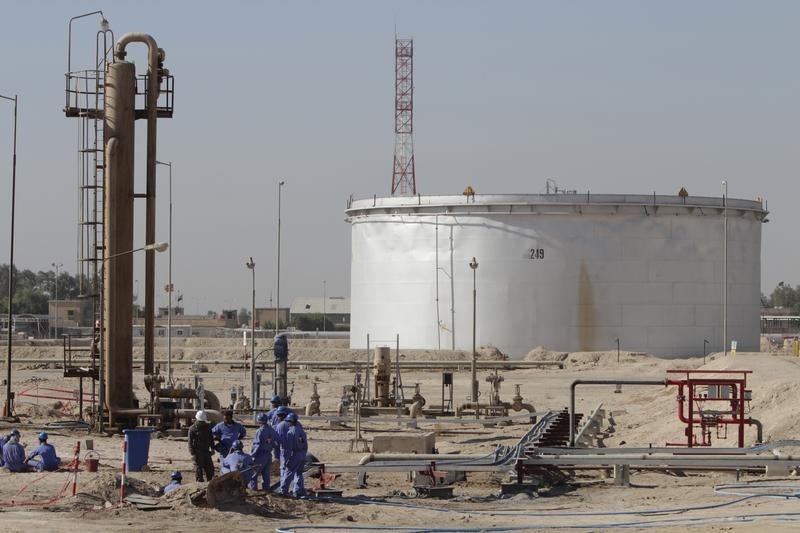Investing.com -- Alaska governor Bill Walker announced a plan on Wednesday to plug a multi-billion gap in the state's annual budget in part by instituting a proposed income tax for the first time in 35 years.
The announcement comes as crude future prices tumbled below $37 a barrel earlier this week to fresh six-year lows, underscoring the long, persistent downturn in oil prices. In September, Alaska produced more than 14.17 million barrels of oil, fourth-highest nationwide behind Texas, North Dakota and California.
Walker made the announcement at an appearance at the Lynden Hangar in Anchorage on Wednesday morning, before outlining a plan to tackle the state's projected $3.2 billion budget shortfall at a press conference hours later. As part of the plan, the state will impose a 6% hike on state residents' Federal Income tax liability, an initiative to retool a comprehensive dividend program and a plethora of other tax increases.
"I guarantee that everyone in Alaska will see something in the plan that they don't care for, but the worst plan is doing nothing," Walker said.
“This is a major paradigm shift in how the State of Alaska conducts business. That’s because we cannot continue with business as usual and live solely off of our natural resource revenues. Never before has the state faced a deficit so large that we are draining more than $9 million from savings every day," Walker added. "Fortunately, those who came before us had the wisdom to set aside money for a rainy day. Well, it’s raining now. But the good news is we have a very large umbrella and some other very handy tools to weather this storm. But we all have to pull together to make this work.”
Walker also plans to revamp the state's oil tax credit program by linking interest rates with the percentage of Alaskan state workers employed. In addition, Walker's proposal will double the state's motor gas tax to 16 cents per gallon and increase its tax on marine fuel by an additional five cents. The governor's plan will also hike taxes on both alcohol and tobacco products.
In 2014, Alaska generated more than 72% of its state revenues from the energy sector, according to the Rockefeller Institute of Government, the most of any state in the U.S. North Dakota, which ranked second in the study, finished as the only other state to derive more than 50% of its revenues from the industry.
Walker made the announced one day after his administration unveiled a gas availability agreement with BP (L:BP) and Conoco Phillips. Over the next year, Walker's administration will finalize plans for pre-FEED work on the AKLNG project—which includes a natural gas liquefaction plant, storage facilities and an export terminal at Nikiski, an 800-mile gas pipeline from the North Slope area to South Central Alaska. The project is expected to export as much as 20 metric million tons of liquefied natural gas per year.
In September, 1980, former Alaska governor repealed the personal income tax following the success of the oil boom. Twelve years earlier, drillers from Humble Oil and the Atlantic Richfield Company discovered the Prudhoe Bay Oil Field, the largest field in North America, on land owned by the state government. At the time, Alaskan residents were subjected to gradual, progressive tax rates of 3 to 14.5%, independent of Federal Income tax.
